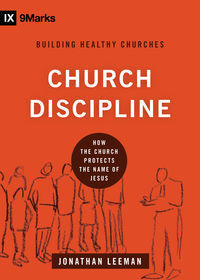Justin Taylor's Blog, page 237
February 14, 2012
Seeds of Purity: New Youth CD + Giveaway
 I've mentioned before that our family enjoys the Seeds CDs—Scripture memory songs, now in the ESV, set to good music.
I've mentioned before that our family enjoys the Seeds CDs—Scripture memory songs, now in the ESV, set to good music.
In addition to their children's CDs, they've just started a youth line. The first one is on Purity, and is being produced in conjunction with a new curriculum from FamilyLife.
Here are the songs on this album:
Hope and a Future – Jeremiah 29:11
Do Not Awaken Love – Song of Solomon 8:4
Your Word – Psalm 119:105
Keep Your Heart – Proverbs 4:23
Not Your Own – 1 Corinthians 6:18-20
Bad Company – 1 Corinthians 15:33-34
He Humbled Himself – Philippians 2:3-5,8
Preeminent – Colossians 1:18
You can sample the whole thing on Bandcamp, purchase it there, or you can listen to the song "Bad Company" below:
FamilyLife has also written a devotional for their Passport2Purity Curriculum on 1 Corinthians 15:33-34 (the same verses as the song). You can access it here:
They also offer some audio reflections:
Seeds is also sponsoring a Parent's Purity Pledge to highlight the important role the behavior and character modeled by parents plays in purity. If you take the pledge, you'll receive a free download of "Your Word" from Seeds of Purity (Psalm 119:105).
Giveaway
Leave a comment below on something you appreciate about the Seeds songs, or why you'd like a CD, and we'll do a random giveaway of five complete sets of their CDs (and each CD package comes with a duplicate bonus copy), plus one free curriculum from FamilyLife's
new edition of their Passport2Purity curriculum (due out in May).
I'll close the comments Friday night at midnight.
An Open Letter to Single Christians on Valentine's Day
A 30-year-old single pastor writes to other singles with some counsel.
An excerpt:
Valentine's Day doesn't help. Images of candy and flowers get old pretty quick. And time spent in the presence of other couples makes you wonder if a Relationship is just the sort of fresh coat of paint that might make you finally visible to the world. And let's face it, this isn't the sort of issue over which the Christian subculture is getting any less obsessive or condescending.
But the one thing that's not ok is to get all mopey about it. The apostle Paul talks about "being content in all circumstances." Still, the great theologian named Tom Petty tells us that "the waiting is the hardest part." So as a young, single pastor, I write this advice to all my fellow singles out there.
Here's an outline:
You probably don't have the gift of singleness.
Pray for love. All of it.
You are not damaged goods.
Take advice sparingly.
Learn to accept the gift of singleness.
Be the change you want to see in your spouse.
February 13, 2012
Is God the Author of Sin? Jonathan Edwards' Answer
Edwards answers, "If by 'the author of sin,' be meant the sinner, the agent, or the actor of sin, or the doer of a wicked thing . . . it would be a reproach and blasphemy, to suppose God to be the author of sin. In this sense, I utterly deny God to be the author of sin."
But, he argues, willing that sin exist in the world is not the same as sinning. God does not commit sin in willing that there be sin. God has established a world in which sin will indeed necessarily come to pass by God's permission, but not by his "positive agency."
God is, Edwards says, "the permitter . . . of sin; and at the same time, a disposer of the state of events, in such a manner, for wise, holy and most excellent ends and purposes, that sin, if it be permitted . . . will most certainly and infallibly follow."
He uses the analogy of the way the sun brings about light and warmth by its essential nature, but brings about dark and cold by dropping below the horizon. "If the sun were the proper cause of cold and darkness," he says, "it would be the fountain of these things, as it is the fountain of light and heat: and then something might be argued from the nature of cold and darkness, to a likeness of nature in the sun." In other words, "sin is not the fruit of any positive agency or influence of the most High, but on the contrary, arises from the withholding of his action and energy, and under certain circumstances, necessarily follows on the want of his influence."
Thus in one sense God wills that what he hates come to pass, as well as what he loves. Edwards says,
God may hate a thing as it is in itself, and considered simply as evil, and yet . . . it may be his will it should come to pass, considering all consequences. . . . God doesn't will sin as sin or for the sake of anything evil; though it be his pleasure so to order things, that he permitting, sin will come to pass; for the sake of the great good that by his disposal shall be the consequence. His willing to order things so that evil should come to pass, for the sake of the contrary good, is no argument that he doesn't hate evil, as evil: and if so, then it is no reason why he may not reasonably forbid evil as evil, and punish it as such.
This is a fundamental truth that helps explain some perplexing things in the Bible, namely, that God often expresses his will to be one way, and then acts to bring about another state of affairs.
God opposes hatred toward his people, yet ordained that his people be hated in Egypt (Genesis 12:3; Psalm 105:25—"He turned their hearts to hate his people").
He hardens Pharaoh's heart, but commands him to let his people go (Exodus 4:21; 5:1; 8:1).
He makes plain that it is sin for David to take a military census of his people, but he ordains that he do it (2 Samuel 24:1; 24:10).
He opposes adultery, but ordains that Absalom should lie with his father's wives (Exodus 20:14; 2 Samuel 12:11).
He forbids rebellion and insubordination against the king, but ordained that Jeroboam and the ten tribes should rebel against Rehoboam (Romans 13:1; 1 Samuel 15:23; 1 Kings 12:15-16).
He opposes murder, but ordains the murder of his Son (Exodus 20:13; Acts 4:28).
He desires all men to be saved, but effectually calls only some (1 Timothy 2:4; 1 Corinthians 1:26-30; 2 Timothy 2:26).
What this means is that we must learn that God wills things in two different senses. The Bible demands this by the way it speaks of God's will in different ways. Edwards uses the terms "will of decree" and "will of command." Edwards explains:
[God's] will of decree [or sovereign will] is not his will in the same sense as his will of command [or moral will] is. Therefore it is not difficult at all to suppose that the one may be otherwise than the other: his will in both senses is his inclination. But when we say he wills virtue, or loves virtue or the happiness of his creature; thereby is intended that virtue or the creature's happiness, absolutely and simply considered, is agreeable to the inclination of his nature. His will of decree is his inclination to a thing not as to that thing absolutely and simply, but with reference to the universality of things. So God, though he hates a things as it is simply, may incline to it with reference to the universality of things.
Why God Almost Drove Me to Despair
I asked the Lord that I might grow
In faith, and love, and every grace;
Might more of His salvation know,
And seek, more earnestly, His face.
'Twas He who taught me thus to pray,
And He, I trust, has answered prayer!
But it has been in such a way,
As almost drove me to despair.
I hoped that in some favored hour,
At once He'd answer my request;
And by His love's constraining pow'r,
Subdue my sins, and give me rest.
Instead of this, He made me feel
The hidden evils of my heart;
And let the angry pow'rs of hell
Assault my soul in every part.
Yea more, with His own hand He seemed
Intent to aggravate my woe;
Crossed all the fair designs I schemed,
Blasted my gourds, and laid me low.
Lord, why is this, I trembling cried,
Wilt thou pursue thy worm to death?
"'Tis in this way, the Lord replied,
I answer prayer for grace and faith.
These inward trials I employ,
From self, and pride, to set thee free;
And break thy schemes of earthly joy,
That thou may'st find thy all in Me."
Indelible Grace has a version of this entitled "I Asked the Lord":
The original is Hymn No. 36 in Book III of John Newton's 1779 Olney Hymnal.
Here is the four-part arrangement used by Bob Kauflin at Together for the Gospel 2010.
Tim Keller Talks on Encountering Jesus at Oxford University
Tim Keller recently spoke (February 8-11, 2012) at the Oxford Inter-Collegiate Christian Union.
You can download the audio for each talk, followed by the videos.
A Skeptical Student Encounters Jesus
The Insider and the Outcast Encounter Jesus
Two Grieving Sisters Encounter Jesus
A Wedding Party Encounters Jesus
The First Christian Encounters Jesus
Tim Keller Responds to Oxford's Questions
When Our Light Obscures the Stars

Søren Kierkegaard (1813-1855):
When the prosperous man on a dark but starlit night drives comfortably in his carriage and has the lanterns lighted, aye, then he is safe, he fears no difficulty, he carries his light with him, and it is not dark close around him.
But precisely because he has the lanterns lighted, and has a strong light close to him, precisely for this reason, he cannot see the stars. For his lights obscure the stars, which the poor peasant, driving without lights, can see gloriously in the dark but starry night.
So those deceived ones live in the temporal existence: either, occupied with the necessities of life, they are too busy to avail themselves of the view, or in their prosperity and good days they have, as it were, lanterns lighted, and close about them everything is so satisfactory, so pleasant, so comfortable—but the view is lacking, the prospect, the view of the stars.
—Søren Kierkegaard, The Gospel of Suffering, trans. David F. Swenson and Lillian Marvin Swenson (Minneapolis: Augsburg, 1948), 123.
HT: JP
19 Million Views Later: Thoughts on Christ, Celebrity, and Controversy

Jeff Bethke has a long blog post reflecting on his viral video, that in one month took him from being almost completely unknown to being viewed 19 million times on YouTube, interviewed by Charlie Rose, critiqued by David Brooks in the NYT, featured on Nightline, etc.
Here are a couple of excerpts.
On artists and local-church accountability:
Too many times artists play the "lone ranger" by submitting to no one except for themselves. I hope the people reading this and writing about me understand that with me this is not the case. I am fully submitted and under the leadership of elders at my local church, who I have given full authority in my life to pull the plug on certain poems, lines, and actions. Furthermore I have made a commitment from here on out to submit my lyrics for future poems to my church elders. On top of that I also have older godly men and women outside of my local church who do the same thing but maybe come from a different theological stream. I have spent countless hours these last couple weeks meeting, praying, and gleaning from these leaders in my life. I've asked them questions such as "do you think I was wrong?" or "where can I grow?" So I hope whoever reads this understands and trusts the leaders God has put in my life to do their scriptural mandate of protecting and shepherding over my heart because they will give an account (Hebrews 13:17-18).
About the pain of critique and slander:
About the actual critique though, I'll be honest, there were times after it came out that I just started to crumble. The pain of critiques was too painful. . . . [T]he last couple weeks have been some of the most difficult in my life. Have they been rewarding? Sure. Have they been exciting? Sure. Have I seen God pour out His grace? Definitely! But the tone, words, and down right vitriol from fellow brothers and sisters in the faith have crushed me. I'm a 22 year old dude who has only been out of college 6 months, and who has only been walking with Jesus for a few years. I am beyond thankful to the older godly men who chose to pick up the phone and find ways to contact me privately, before discussing me publicly. I personally had to stop reading and trying to follow the blogs because Jesus showed me pretty quickly it wasn't healthy for my heart (whether praise or critique). The ones I did come across stung. Some hardly even dealt with my content, but wrote more about my character, my salvation (or lack thereof), my looks, my poetry, etc. Part of me was extremely hurt, while part of me started to really wonder how blog posts fit into Jesus words in Matthew 12:36. Today, we understand that God will hold us accountable for what we speak, but we neglect that judgment a lot of times when behind a computer screen in a room by ourselves. Part of me trembles when I think about the day I stand before the King of Kings and He asks me to give an account for every careless word I've ever spoke, facebooked, or tweeted.
And his conclusion:
Lastly, I am thankful for grace. I am thankful that the Cross of Jesus met me where I am. I'm thankful that I don't have to perform for Him, but rather He has performed for me. That's the grace that drew me in the first place, and its that grace I cling to daily. How could I not after all He has done for me? He is worthy of all my worship. He is worthy of all glory. I pray to God that through all of this I would grow and pursue Him more deeply, cherish Him more fervently, and love Him more fiercely. This has been a once in a lifetime opportunity and my hope is to steward it well, remaining faithful, and pointing to Him!
February 12, 2012
The Mill and the Cross: A Picture Is Worth a Thousand Words
In 1564 Pieter Bruegel the Elder painted "The Procession of Calvary," of Christ carrying the Cross set in a large landscape, painted in 1564:

What does it all mean? A new movie (now out on DVD and available for instant-streaming for Netflix), tries to bring it to life. I haven't watched the film yet, but the concept itself is fascinating. A reviewer writes, "the narrative is not the point—the extraordinary imagery is. The painting literally comes to life in this spellbinding film, its wondrous scenes entering the viewer like a dream enters a sleeping body."
For a couple of appreciative Christian reviews, see this one from CT Movies and this one from Christ and Pop Culture.
February 10, 2012
The Faith of Jeremy Lin: An Interview
 Three weeks ago pro basketball player Jeremy Lin—unrecruited out of high school and undrafted out of college—was sent to the minor leagues of the NBA. Three days later he was reinstated with the Knicks as a benchwarmer. On February 4, he scored 25 points, with 5 rebounds and 7 assists. The next game he had 28 points and eight assists, and tonight he scored 38 points for a victory over the Lakers, capping off a remarkable week and a four-game winning streak. He's becoming the Tim Tebow of the NBA.
Three weeks ago pro basketball player Jeremy Lin—unrecruited out of high school and undrafted out of college—was sent to the minor leagues of the NBA. Three days later he was reinstated with the Knicks as a benchwarmer. On February 4, he scored 25 points, with 5 rebounds and 7 assists. The next game he had 28 points and eight assists, and tonight he scored 38 points for a victory over the Lakers, capping off a remarkable week and a four-game winning streak. He's becoming the Tim Tebow of the NBA.
For a little bit of background on Lin—especially related to his identity first as a Christian and then as an Asian American—here is part 1 and part 2 of Timothy Dalrymple's interview with NBA player Jeremy Lin, conducted back in 2010 when he was at Harvard.
An encouraging excerpt:
When you're called to be a Christian, you're automatically called to be different from everyone else. In today's world of basketball, it makes you really different, because the things that society values aren't necessarily in line with what God values.
Much of it comes down to humility. We as Christians are called to be humble. And if we really understand the gospel, we will be humble. We should be humble, and understand that everything that is good comes from God.
We as Christians are called to be humble. And if we really understand the gospel, we will be humble. We should be humble, and understand that everything that is good comes from God.
Church Discipline and Social Media
 Could I offer a simple plea to those of us who write online—whether on blogs or on Twitter or on Facebook?
Could I offer a simple plea to those of us who write online—whether on blogs or on Twitter or on Facebook?
There is an exception for every rule, but please be exceedingly slow to write about or evaluate situations of church discipline from a distance. Virtually all instances of church discipline that I know of have layers of complexity, pain, history, sin, personalities, and just plain old messiness. And there are two sides to every story.
Let's remember that the truth of this proverb:
The one who states his case first seems right,
until the other comes and examines him.
(Prov. 18:17)
Discipline done wrongly can be harmful and hurtful. But criticizing the discipline from a distance, without an awareness of all the facts, can damage the reputation of the church of Christ and her leaders.
In addition, let's remember that those who call most loudly and consistently for repentance among some pastors—often with legitimate criticism—are sometimes the least to model repentance when they themselves may be engaged in gossip or slander.
My dilemma in giving specific examples here is that it would do precisely what I'm trying to avoid—discussing local church discipline situations publicly. But I recently saw a post that models wise repentance after a critical post, and think it's worth quoting as a model. I've deleted specific names of the individual and the church in question:
While being discreet to protect the identities of those involved, and avoiding many of the gory details, my friend laid out enough evidence to satisfy me that the initial accounts given by [the individual] and those promoting his story are at best incomplete, and most likely deliberately misleading. Large parts are left out, including the majority of action taken by the church to reconcile him. Also, [the individual's] case involves a confluence of several situations that it appears [the church] has properly and thoroughly dealt with. Because the details involve the sin of others that are not publicly known, the church has decided the best course of action is to remain silent to protect those people's reputation and privacy. They did not divulge the identities of the people involved, or the specific details of each situation to me, but they gave me a rough overview of the pieces missing in various accounts of the incident now in circulation. In light of these facts it is only right that I publicly retract my former comments directed at [the church].
Only the gospel can produce that kind of humility.
While I hope that we would have less discussion of specific cases of church discipline, I also hope we would have more discussion about the biblical teaching on this important process. Toward that end, I suspect that Jonathan Leeman's short book, Church Discipline: How the Church Protects the Name of Jesus (due out in April from Crossway), will become the go-to book for many churches. As Craig Blomberg writes, "Far too few biblically grounded, pastorally sensitive books on church discipline remain in print today. I know of none that is as exegetically accurate, practically relevant, and filled with real-life case studies of how churches should deal with a wide variety of common situations." J.D. Greear says it's "an outstanding, one-of-a-kind theological work. . . . I believe this will be the definitive work on church discipline, and our elders plan to use this work as our guide." So if you have questions on what "church discipline" is and how to put it into practice, this may be a resource to consider.
Justin Taylor's Blog
- Justin Taylor's profile
- 44 followers




